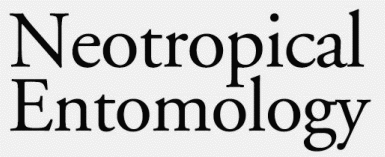The effect of silicon-treated wheat plants (Triticum aestivum L.) on the greenbug, Schizaphis graminum (Rond.) (Hemiptera: Aphididae) was evaluated. Plants were treated with silicon incorporated to the soil and by foliar spraying. Aphid development was evaluated by observing the duration of the pre-reproductive, reproductive and post-reproductive periods, as well as fecundity and longevity. Probing behaviour was investigated by using the DC electrical penetration graphs (EPG) technique and a "honeydew clock". Silica treated plants had a clear adverse effect on aphid development. Stylet penetration was not affected by treatments showing no physical barriers by the plant tissue. However, stylet was withdrawn more often on plants treated with silica, resulting in reduction of probing time. Sieve elements were reached equally by aphids in all treatments and the insects remained ingesting phloem sap for similar periods. However, honeydew excretion was highly reduced indicating lower sap ingestion rate or higher sap retention inside the body. Chemical changes and induced resistance are possibly related to the reduction of aphid performance.
Insecta; resistance; honeydew; biology; EPG



